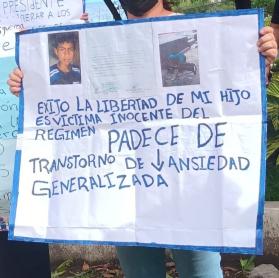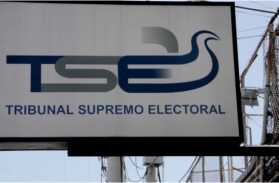A Milestone in Transparency: El Salvador Publishes Donations to Political Parties for the First Time
From the Spring 2018 issue of El Salvador Watch
In a historic milestone for transparency and public accountability, the government of El Salvador published a full list of donors to all political parties from 2006 and 2017. The February 2018 report published by the Secretary of Participation, Transparency and Anti-Corruption provides critical new insights into how El Salvador’s political parties are funded and by whom.
While the country still lacks campaign finance regulation, it wasn’t until 2013 that a law was passed requiring political parties to reveal their donors. Since then, efforts to publish information about political contributions have survived a number of court challenges, making this report all the more significant.
One of the most striking takeaways is the balance of donations between individuals and businesses. From 2006-2017, the governing leftist Farabundo Martí National Liberation Front (FMLN) received 92% of its donations from individuals, while the Nationalist Republican Alliance (ARENA) received just 8% from individuals; the other 92% came from businesses and other private entities.
Another important revelation is the vast difference in the amount of money each party has received. Between 2014 to 2017, ARENA received $16.3 million in donations, nearly four and a half times more than the FMLN’s $3.6 million. ARENA’s top five donors since 2006 gave between $1-12 million each; the FMLN’s top donors gave between $150,000 - $188,000 each. These statistics illustrate the tremendous odds that the FMLN must overcome in order to win elections against the millionaire opposition.
As community radio network ARPAS commented, “ARENA is confirmed for what it is: a party of the oligarchy and elite (for which ironically many poor people vote), the most corrupt party, and because of this, undeserving of the power the electorate has given it.”
Of note is ARENA’s top donor, the Center for Political Studies José Antonio Rodríguez Porth. This shadowy private foundation, founded in 2002 by ex-President Francisco Flores, has been accused of playing a role in the embezzlement and money laundering of at least $15 million dollars in aid from Taiwan following the 2001 earthquake. Ex-President Flores was indicted for embezzlement in 2013 but died while awaiting trial. The Porth Center is far and away ARENA's largest single contributor, donating $12 million dollars between 2006-2017, raising questions as to whether ARENA is still financing its political campaigns with embezzled earthquake relief money.
Creating transparency has been one of the main goals of the FMLN since they won the presidency for the first time in 2009. The prior twenty years of right-wing rule were characterized by a complete lack of information regarding government and campaign financing, coupled with rampant corruption and the privatization of lucrative public utilities, including banks, the electrical grid, and telecommunications. Given this history, there has been a strong public demand to end corruption and hold public officials accountable.
The new FMLN government formed the Secretary of Participation, Transparency and Anti-Corruption in 2009 in order to promote a more open and accountable government. To codify this new direction, the Legislative Assembly, led by the FMLN, passed the Law for Access to Public Information in 2011, which mandated that all government agencies publish accounts of their spending and activities and make reports available upon request.
While these changes dramatically increased the public’s ability to access information from government offices, information about campaign financing was still held privately. Those changes required a new Law of Political Parties, passed in 2013.
According to Marcos Rodríguez, who published the report, its importance lies in the fact that “it reveals where and how conflicts of interest could be produced.” As the saying goes, numbers don’t lie, and the report gives a clear window into who funds Salvadoran political parties and to which interests they respond. Overall, it is a momentous advance for democracy in El Salvador, as there has never been this level of transparency into the finances of political parties. Its publication is a testament to the consistent efforts of the FMLN to create a more open government.
Read the full report at www.donantespartidos.info.



